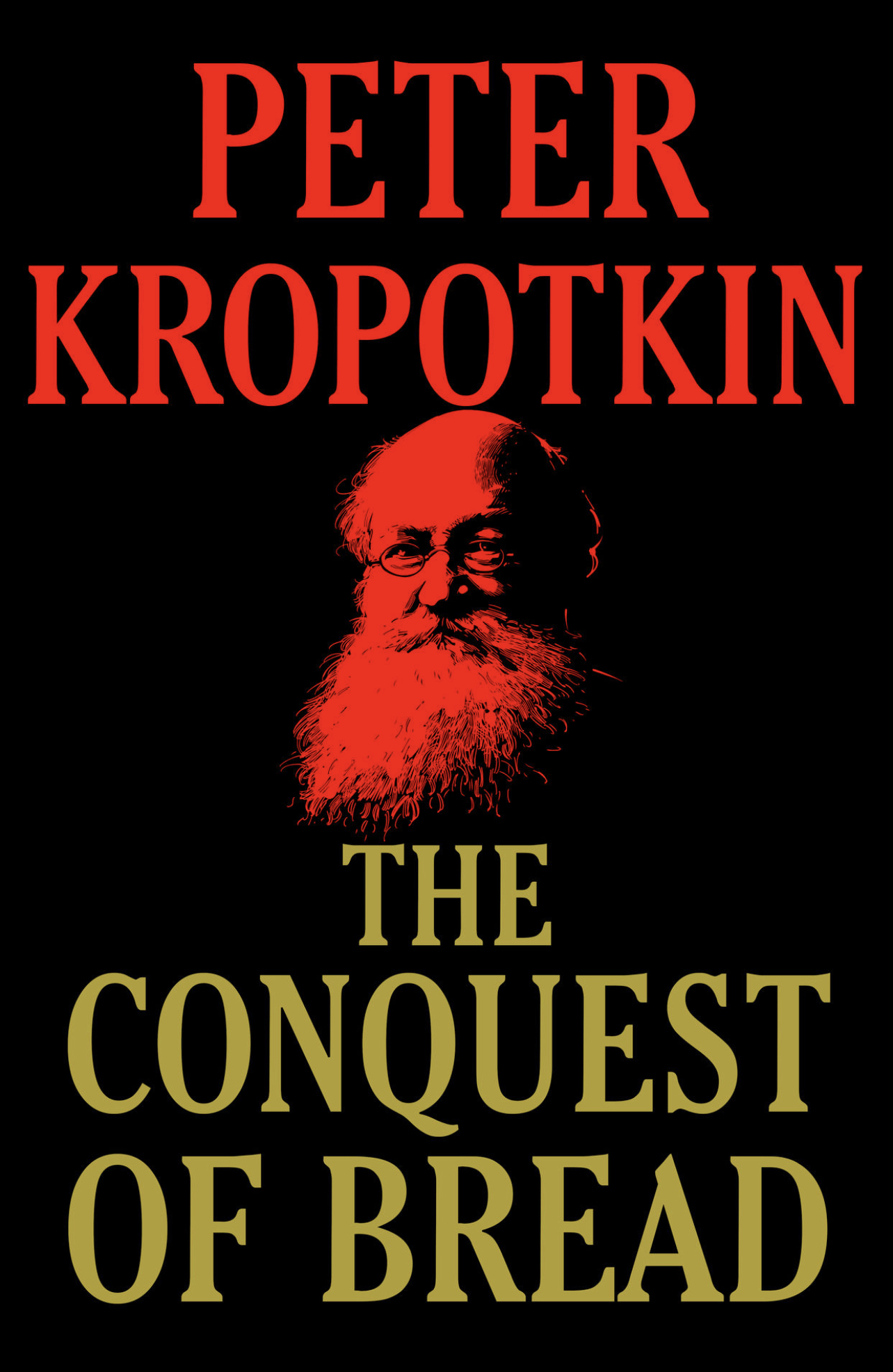The Conquest of Bread
Author: Peter Kropotkin Publisher: N/A Publish Date:1892 Status:💫 Rating:
Nebulas
- The Conquest of Bread Chapter 1. Our riches
- The Conquest of Bread Chapter 2. Well-being for all
- The Conquest of Bread Chapter 3. Anarchist communism
- The Conquest of Bread Chapter 4. Expropriation
- The Conquest of Bread Chapter 5. Food
- The Conquest of Bread Chapter 6. Dwellings
- The Conquest of Bread Chapter 7. Clothing
- The Conquest of Bread Chapter 8. Ways and means
- The Conquest of Bread Chapter 9. The need for luxury
- The Conquest of Bread Chapter 10. Agreeable work
- The Conquest of Bread Chapter 11. Free agreement
- The Conquest of Bread Chapter 12. Objections
- The Conquest of Bread Chapter 13. The Collectivist Wages System
- The Conquest of Bread Chapter 14. Consumption and production
- The Conquest of Bread Chapter 15. The division of labour
- The Conquest of Bread Chapter 16. The decentralization of industry
- The Conquest of Bread Chapter 17. Agriculture
Notes
Amount: 12
- Capitalism forces the worker to give up much of what they produce
- Since every creation is the culmination of countless contributors, no single individual should be able to claim it as their own
- Humanity is only poor because the products of our labor are seized by a few owners
- People go without because the bourgeois will limit production in order to keep prices up
- A lot of work in a capitalist system is wasted on useless products
- A lot of the means of production stand idle because people can’t get those jobs
- Capital and the means of production must become common property in order to achieve well being for all
- Every product is to some extent dependent on the external community
- A communist society would be forced to immediately abandon all wage systems
- Communist tendencies can be seen in all individualist societies
- Individualist societies still have many services that do not measure individual consumption or contribution to society before use
- Organization would be more efficient and less constraining without government intervention
